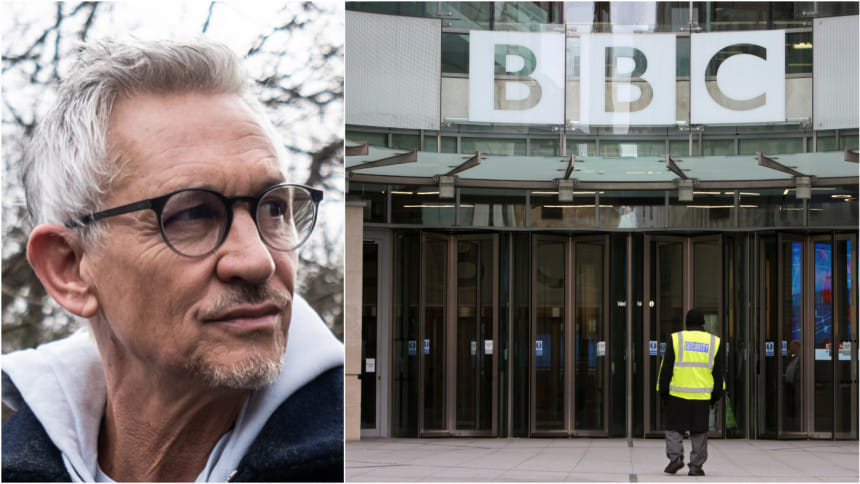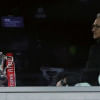Lineker crisis exposes impartiality row at heart of BBC

The Gary Lineker crisis that engulfed the BBC over the weekend brought to a head an increasingly acrimonious row about impartiality at the public-funded British broadcaster.
The former England football star was forced to "step back" from his duties presenting flagship Premier League highlights show Match of the Day after using Twitter to accuse the UK government of using Nazi-era rhetoric in announcing its policy to tackle illegal immigration.
Former England players Ian Wright and Alan Shearer then refused to appear as pundits, followed by the programme's commentators and a slew of other presenters, decimating the broadcaster's sports coverage over the weekend.
Although the immediate crisis was resolved on Monday, with Lineker returning for Saturday's show, the row over impartiality only looks set to deepen.
Given its funding through a compulsory licence fee on households with a television set, public trust in BBC impartiality is a key factor in its ongoing survival, which is also threatened by the increasing popularity of streaming among younger media consumers.
Director-general Tim Davie stressed that "impartiality is important to the BBC" in statements announcing Lineker's return.
"The potential confusion caused by the grey areas of the BBC's social media guidance that was introduced in 2020 is recognised," he added.
The BBC is particularly exposed to the emerging world of social media, with previously clear boundaries between the broadcaster's many roles, and the personal and professional lives of its staff, becoming ever-more blurred.
Tory links
Lineker's critics claim the broadcaster has allowed him to use the platform afforded him as the face of its much-loved football show to influence contentious political issues.
But his backers accuse the broadcaster of taking their cues from Conservative politicians, pointing out that current BBC chairman Richard Sharp facilitated a loan guarantee for former prime minister Boris Johnson while applying for the job.
They also questioned Davie's own past links to the Tory party, and the presence on the BBC board of Robbie Gibb, who was a former Downing Street communications director in Theresa May's government.
The back-and-forth is symptomatic of the ongoing debate, in which both sides of the political divide accuse it of bias.
Sharp's situation has again highlighted the political nature of the appointment process to become BBC chairman -- the person responsible for overseeing its broad strategy and leading the process for appointing the director-general, who is its editor-in-chief.
His closeness to Conservative lawmakers has led to accusations that the broadcaster clamped down on Lineker due to his criticism of the government.
But controversy over "cronyism" in appointing the chairman is nothing new.
Conservatives complained about the 2001 appointment of Gavyn Davies, a Labour party donor whose wife was private secretary of then finance minister Gordon Brown.
Counter-claims
However, the row was largely confined to the corridors of Westminster until the UK's seminal 2016 vote to leave the European Union.
Brexit supporters accused the broadcaster of skewed coverage following the vote, presenting an unbalanced view of the impacts of exiting the EU.
While presenters outside the news team are not bound by the same strict rules on social media use, Brexit supporters also pointed to frequent anti-Brexit tweets by presenters to suggest bias within the organisation.
More recently, BBC News presenter Martine Croxall was taken off air over her coverage of former prime minister Boris Johnson's withdrawal from October's Conservative leadership race, in which she said: "Am I allowed to be this gleeful? Well I am."
On the other side, Labour supporters claimed that the organisation was biased against its far-left former leader Jeremy Corbyn, with Lineker himself tweeting "Bin Corbyn" in 2017.
Anti-Brexit supporters also claim that it did not do enough to challenge misinformation in the "leave" campaign in the run up to the vote.
With the UK's divisions only appearing to deepen, and social media becoming ever-more influential, the challenge of threading the needle for one of the world's best-respected broadcasters remains a daunting one.

 For all latest news, follow The Daily Star's Google News channel.
For all latest news, follow The Daily Star's Google News channel. 








Comments